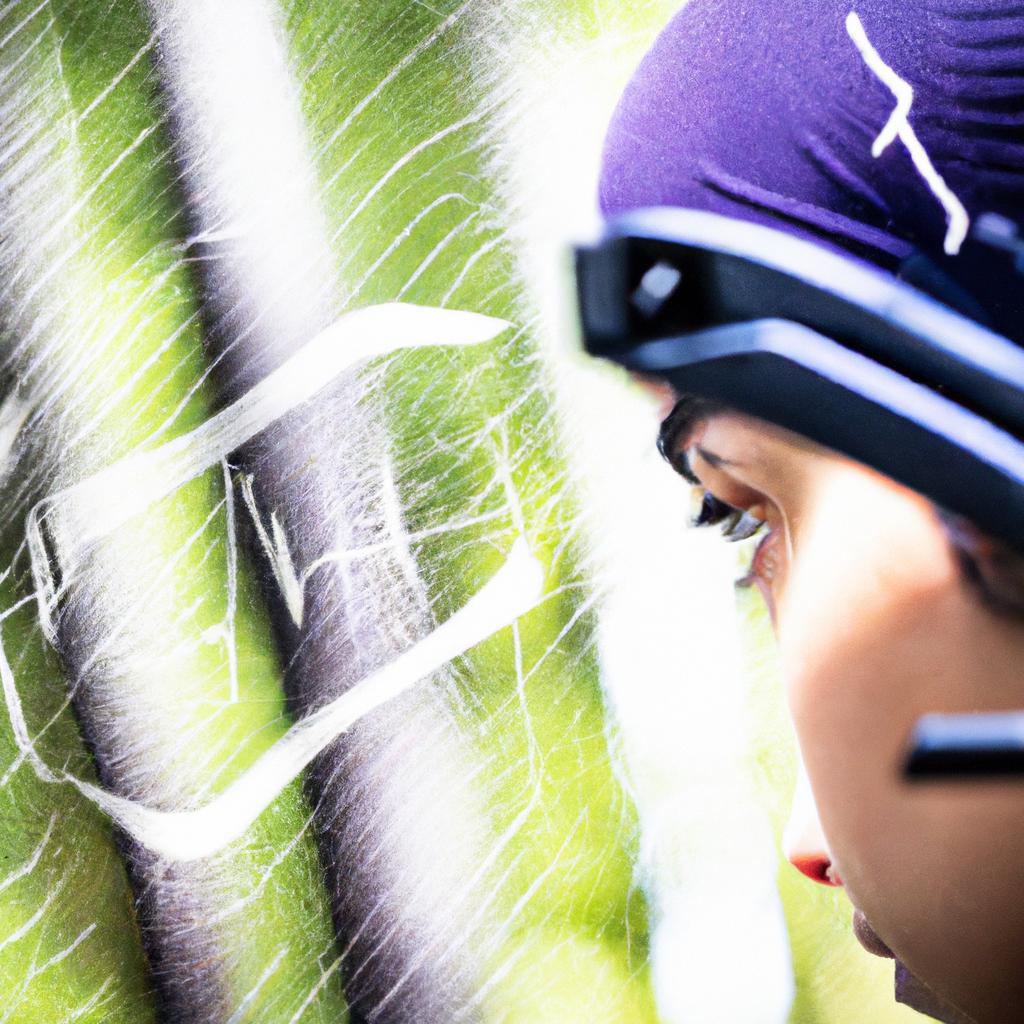**”The Role of Neurofeedback Devices in Enhancing Athletic Focus and Performance: Exploring Real-Time Brainwave Monitoring for Optimal Training”**
# The Role of Neurofeedback Devices in Enhancing Athletic Focus and Performance: Exploring Real-Time Brainwave Monitoring for Optimal Training
In the world of athletics, where every millisecond can determine victory or defeat, the quest for an edge over the competition is relentless. While traditional training methods focus on physical conditioning and skill development, an emerging trend is gaining traction: neurofeedback devices. These innovative tools allow athletes to monitor their brainwave activity in real-time, offering insights that can enhance focus and performance. This blog post delves into how neurofeedback works, its benefits for athletes, and practical tips for integrating it into training regimens.
## Understanding Neurofeedback
Neurofeedback, also known as EEG biofeedback, is a technique that trains individuals to alter their brain activity through real-time monitoring. By using electrodes to measure brainwave patterns, athletes can receive immediate feedback on their mental state. This feedback helps them learn how to achieve optimal states of focus, relaxation, and mental clarity.
### How Neurofeedback Devices Work
Neurofeedback devices track brain waves across various frequencies, including delta, theta, alpha, beta, and gamma waves. Each frequency is associated with different mental states:
– **Delta Waves**: Deep sleep and restorative states.
– **Theta Waves**: Creativity and intuition.
– **Alpha Waves**: Relaxation and calm focus.
– **Beta Waves**: Active thinking and problem-solving.
– **Gamma Waves**: Higher-level cognitive functioning.
By recognizing these patterns, athletes can adjust their mental states, enhancing focus and overall performance during training and competition.
## Benefits of Neurofeedback for Athletes
### Enhanced Focus and Concentration
One of the primary benefits of neurofeedback is its ability to sharpen focus. Athletes often face distractions that can impede performance, whether they stem from external environments or internal anxieties. By training their brains to maintain a state of optimal concentration, athletes can better execute their strategies and remain in the zone during critical moments.
### Improved Stress Management
High-pressure situations can lead to anxiety, which adversely affects performance. Neurofeedback training helps athletes manage stress by teaching them to recognize and modify their brainwave patterns. This ability to self-regulate can lead to improved resilience and mental toughness in competitions.
### Faster Recovery and Rest
Recovery is essential for athletic performance, and neurofeedback can play a significant role in facilitating this process. By promoting relaxation and reducing stress levels, athletes can improve their sleep quality, leading to faster recovery times and enhanced physical performance.
## Nutrition Tips for Optimal Brain Function
While neurofeedback devices can significantly enhance mental performance, proper nutrition is equally crucial. Here are some nutrition tips that can help athletes optimize their brain function:
1. **Omega-3 Fatty Acids**: Found in fish, flaxseeds, and walnuts, omega-3s support brain health and cognitive function. Including these in your diet can enhance neural connectivity.
2. **Antioxidant-Rich Foods**: Berries, dark chocolate, and green leafy vegetables help combat oxidative stress, supporting overall brain health.
3. **Hydration**: Staying well-hydrated is essential for optimal brain performance. Dehydration can lead to fatigue and impaired cognitive function, so ensure you drink enough water throughout the day.
4. **Balanced Meals**: Consuming a mix of protein, healthy fats, and complex carbohydrates can help maintain steady energy levels and improve focus.
## Exercise Advice for Enhanced Mental Performance
Physical exercise is known to boost mood and cognitive function, making it a vital component of an athlete’s regimen. Here are some exercise tips to complement neurofeedback training:
1. **Incorporate Mindfulness Practices**: Activities like yoga and tai chi combine physical movement with mental focus, helping athletes strengthen their mind-body connection.
2. **Interval Training**: High-intensity interval training (HIIT) not only improves physical fitness but also enhances mental resilience, making it easier to manage stress during competitions.
3. **Cross-Training**: Engaging in different sports or physical activities can challenge the brain in various ways, promoting cognitive flexibility and adaptability.
4. **Cool Down with Intention**: After intense training sessions, take time to cool down with relaxation techniques that focus on breathing and mindfulness, facilitating the transition from high-energy activities to a state of calm.
## Health Benefits Beyond Performance
In addition to improving athletic performance, neurofeedback can offer broader health benefits:
– **Enhanced Emotional Regulation**: Athletes often face emotional ups and downs; neurofeedback training can help stabilize mood and promote emotional balance.
– **Increased Self-Awareness**: By understanding their brain patterns, athletes can gain insights into their mental habits, leading to personal growth and improved decision-making.
– **Better Sleep Quality**: Improved brain function can lead to better sleep, which is crucial for recovery and overall health.
## Conclusion
Neurofeedback devices represent a frontier in athletic training, providing athletes with tools to enhance focus, manage stress, and improve overall performance. By integrating neurofeedback with proper nutrition and exercise, athletes can optimize their training regimens and unlock their full potential. As the intersection of technology and sports science continues to evolve, those who embrace these innovations will likely find themselves at the forefront of athletic achievement. Whether you’re a seasoned professional or an aspiring amateur, exploring neurofeedback may just be the game-changer you need to elevate your performance to new heights.















Post Comment